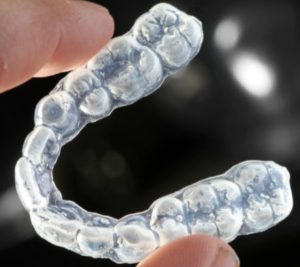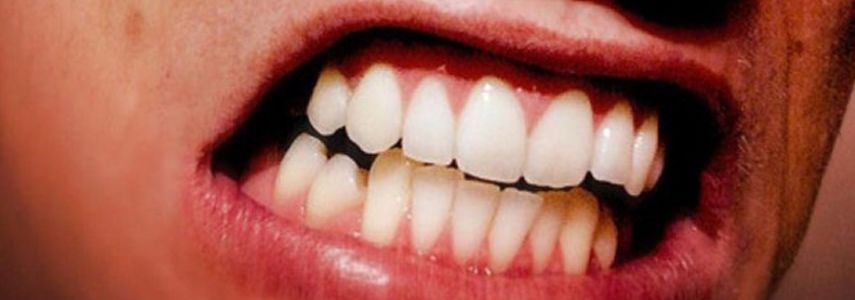Bruxism is a decidedly subtle pathology that can cause multiple damage to the teeth often without real awareness on the part of the person concerned.
The main characteristic of bruxism is in fact the predisposition to grind the teeth, rubbing them together, especially during the hours of sleep. For this reason, being an unconscious activity of the chewing muscles, one is lucky enough to be signaled by another person or the pathology will continue to act undisturbed causing ever greater damage to the health of the teeth.
Alarm bells for those suffering from bruxism
Although it is difficult to do a self-diagnosis, there are symptoms that could certainly raise the doubt about the possibility of suffering from bruxism.
Specifically, if in the morning as soon as you wake up you immediately feel a feeling of tiredness and pain in the facial muscles, even if it is often difficult to refer to a pathology such as bruxism, it could be a first fundamental alarm bell.
The pain in the muscles is perceived because, during the night, the grinding of the teeth leads to a contraction of the facial muscles for a duration of about ten seconds, an activity that is repeated numerous times and that leaves that feeling of fatigue in the morning.
What are the consequences of bruxism?
About 20% of the population suffers from bruxism, many as we said are unaware of it, but it is good to investigate what are the damages that a pathology such as bruxism can cause to the teeth.
Wear of the enamel
If persistent rubbing of the teeth can lead to gradual wear of the tooth enamel. The erosion of the enamel exposes the dentine, that is the underlying part that encloses the nerve endings. The immediate consequence will therefore be, for those suffering from bruxism, an increase in the sensitivity of the teeth especially to hot / cold stimuli. Wear of the enamel also exposes the tooth to more serious bacterial attacks which in turn could cause caries or more serious inflammations.
Fracture of the teeth
Cases of bruxism that are not treated promptly can lead to tooth erosion and fracture. A deep fracture can cause persistent pain and problems when chewing. A fractured tooth is more exposed to the possibility of contracting infections and if the fracture is too deep it could also be subject to extraction.
Teeth fall
Enamel and dentin can be eroded until they disappear. In such a serious condition, the tooth can undergo deep inflammations such as pulpitis or periodontitis, the advanced stages of which lead to the extreme consequence of tooth loss.
How to remedy bruxism?
 If the causes of bruxism remain almost unknown, progress has been made in the field of solutions to this pathology, especially in the field of gnathology, a branch of dentistry that deals precisely with disorders related to malocclusion or incorrect movements of the jaw and of the facial muscles.
If the causes of bruxism remain almost unknown, progress has been made in the field of solutions to this pathology, especially in the field of gnathology, a branch of dentistry that deals precisely with disorders related to malocclusion or incorrect movements of the jaw and of the facial muscles.
In fact, for bruxism there are no medicines to be taken. The problem of enamel erosion can be solved with the use of cosmetic dentistry and the application of dental veneers, but a byte is required to intervene directly on the cause.
The byte is a prosthesis, similar to a mouthguard, to be applied on the teeth at night. The bytes can be of two types: rigid and personalized to measure for the patient or self-modeling and purchasable in the pharmacy.
The function of the byte is to prevent direct contact of the teeth and consequently avoid grinding. The innovative technologies applied to this field also make it possible to create bytes that can also restore the correct alignment of the dental arches.
A custom-made byte, by a dental technician with the specific indications of a dentist, will have the advantage of perfectly adapting to the morphology of the patient’s oral cavity, especially if the dentist can use high-tech instruments with digital acquisition of the images.









